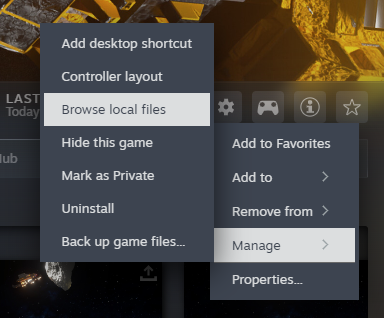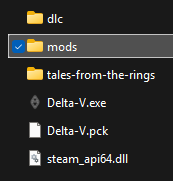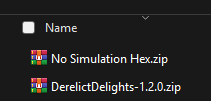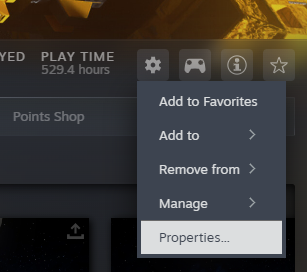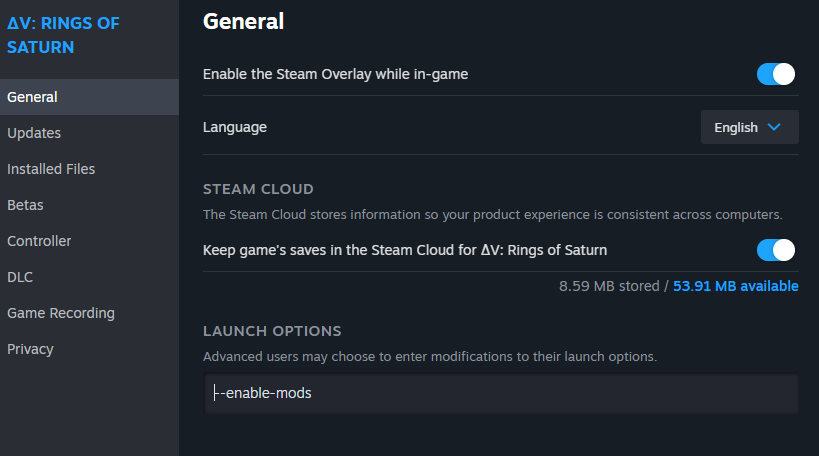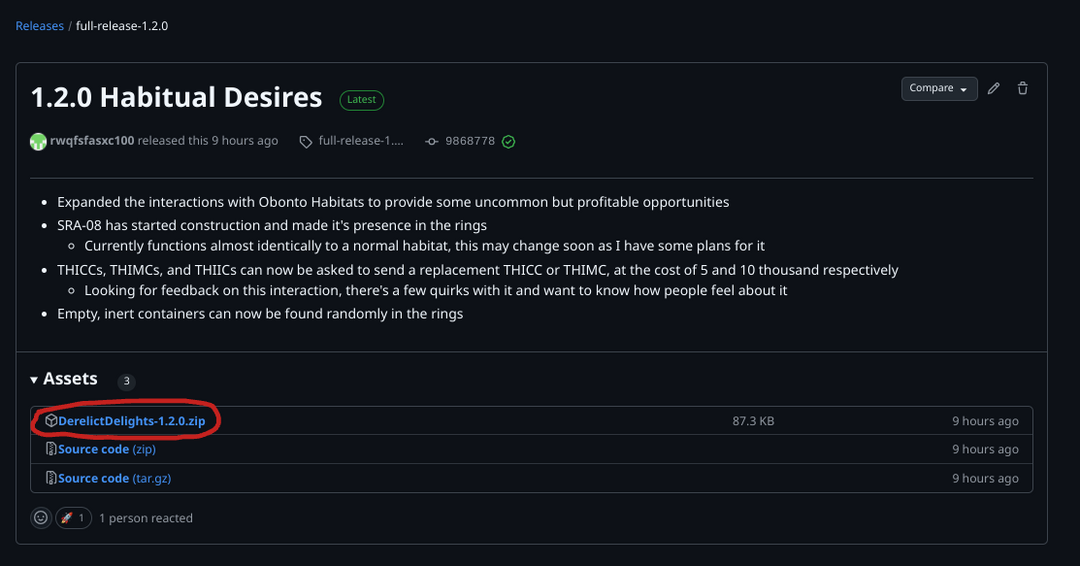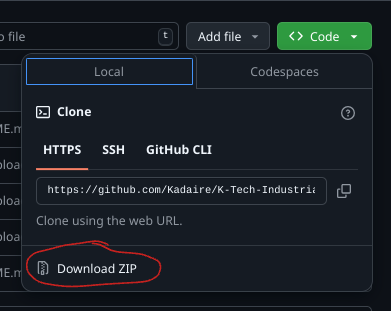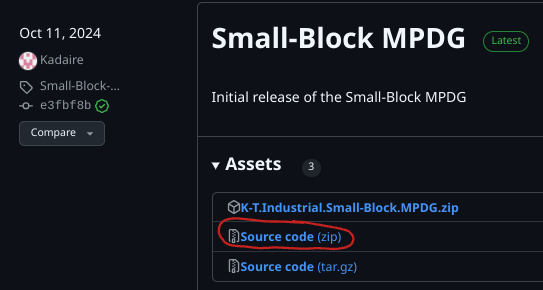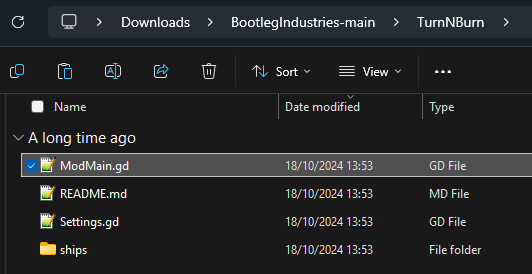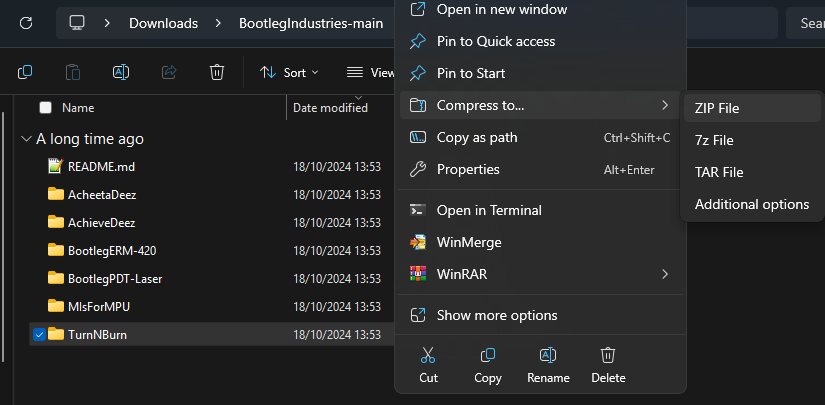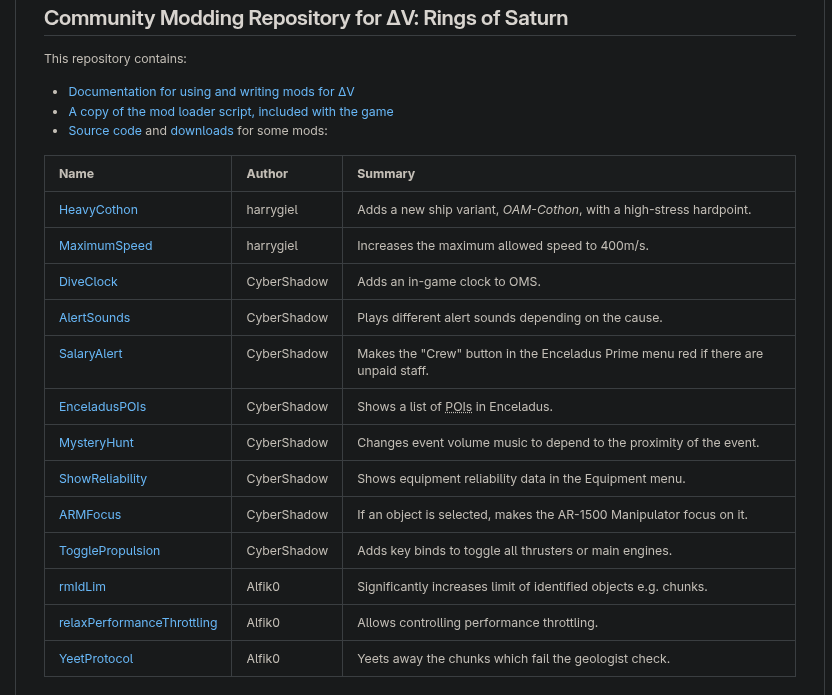Delta-V: Rings of Saturn supports mods, and has provided modding support since mid-2021. The game's modloader, when active, loads mods as .zip files from a 'mods' folder within the game's directory.
Mods can execute unsafe or dangerous code on your computer, and may carry bugs or game-breaking issues. Mods are not guaranteed to be compatible with another mod, and it is advised to use only a small handful of mods at a time to get the best experience from them. Contact the mod author if you have problems, as Kodera Software cannot and will not help with problems caused by mods, and will flag bugs reported as "using mods".
If you want to make your own mod, check out Za'krin's Modding Helper Guide, and the modding help channel in the Kodera Software Discord where you can ask for assistance, or the (currently under construction) technical info page which goes into how various numbers and mechanics work and are formatted. (if the first discord link does not work, you may need to have joined the Discord server, which you can do here
If you are already familiar with how modding works and are aware of the dangers, you can find a list of every known mod and mod repository on it's dedicated page.
It is highly advised you give the Getting Started section a read, as mods can very easily cause irreparable damage to your save. YOU HAVE BEEN WARNED!!!
Getting Started With Installing Mods
This part of the guide will assume you're on Steam, and using Windows given it is a port of this guide, however they will work with alternatives on other Operating Systems and launchers. If you need any help, feel free to ask on the ΔV Discord
Part One: Installing Mods
Starting off with this section may seem counter-intuitive to some, however it is one of the easiest steps, and provides the setup needed for when you actually come to download mods.
Creating the Mods Folder
The first step is making a folder for the mods to go. To start off with, you either right click on the game, or click the gear icon on the game page, then go to the "Manage" tab, then "Browse local files".
This will open up a file explorer (or your OSes equivalent) at the location of the game's executable and .pck files. Here, you will want to create a new folder, and name it mods.
From here, this is the folder where you'll be placing the .zip files of the mods you want to install.
Enabling Mods
Similar to accessing the executable's folder, you'll want to either right click or press the gear icon, and this time go to the properties section.
From here, you'll want to select the launch options, and put --enable-mods. While this is in the launch options (as long as there's no typo), mods will load and you will no longer be able to earn achievements or leaderboards, however achievement progress won't be blocked internally and can be granted after disabling mods.
Once this has been enabled, mods will load. If you want to stop loading a mod, you can change the file extension to anything that isn't a .zip file, move it to a different folder, or if you want to stop loading all mods, you can remove the --enable-mods flag.
Part Two: Downloading Mods
Where Do I Find Mods
Mods will be distributed through a multitude of ways. Most have their own Github or Gitlab repository, many have threads on the ΔV Discord's workshop board, and a handful are available on the Nexusmods page for ΔV. If you want an easy way to look over available mods, a list is maintained on the wiki containing every known mod for the game, including redundant or currently broken mods.
Downloading Mods from Github
Most mods have a Github release, and depending on how they're set up, will have different ways of downloading them.
Github Releases Tab
The first and most common way to download a mod is through the releases tab of the mod. The releases section is on the right-hand-side of the page. Clicking on the Releases text shows all releases, with the most recent release being displayed directly below it. I'm using my own mod as an example, as many mods follow a similar scheme.
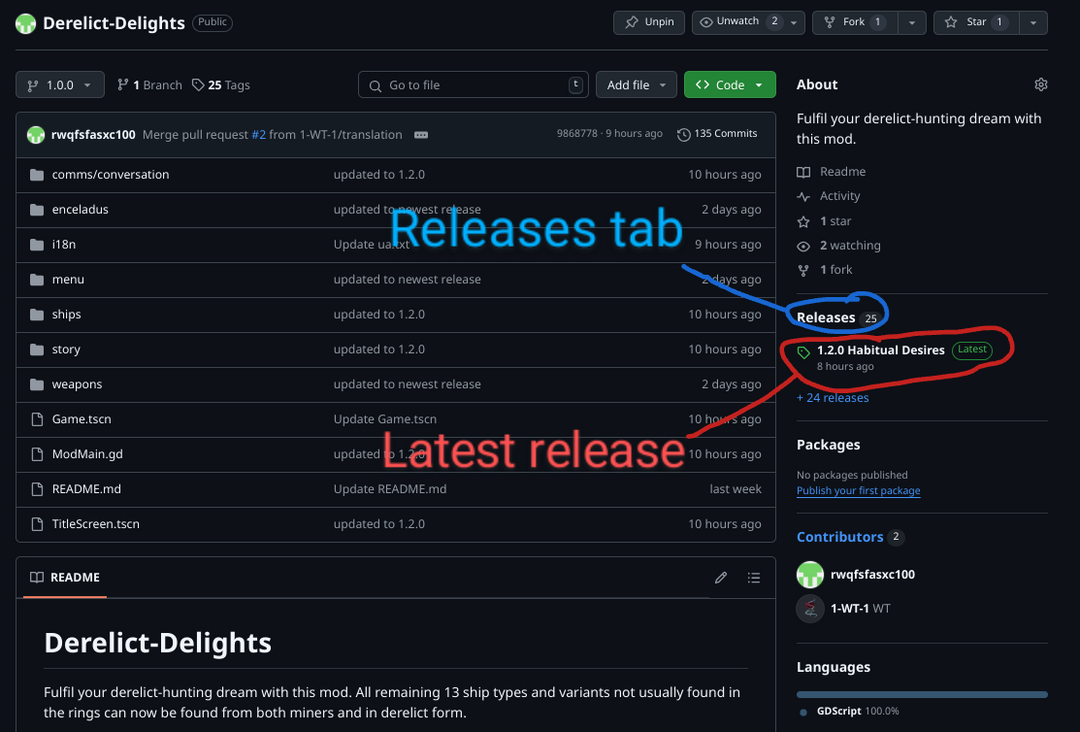 From here, you will want to go to the release of choice. Clicking on the latest release is usually the best way, but some may have several releases for different mods, especially those with multiple mods in the same repository (such as Bootleg Industries). In this case, there is one mod release to check, being the latest, and you'll want to download the pre-compiled zip. Some mods may have several pre-compiled zips, where you can choose specific mod versions to your liking.
From here, you will want to go to the release of choice. Clicking on the latest release is usually the best way, but some may have several releases for different mods, especially those with multiple mods in the same repository (such as Bootleg Industries). In this case, there is one mod release to check, being the latest, and you'll want to download the pre-compiled zip. Some mods may have several pre-compiled zips, where you can choose specific mod versions to your liking.
Pre-compiled Zips In the Repository
Some mods (such as for this example, K-Tech Industrial of Mars) have the pre-compiled zips stored within the repository itself. There are a few ways to download these. The first is to download the entire repository using either the download zip from the code button, or the download source button from the releases tab. From there, you can open the zip, go through the folders and extract the zip files you want.
The second way is to download each zip individually. For this, navigate through the repository's folder structure, open the desired zip, and press the download button. This method is considerably slower, and only a good idea if you only want one or two of the mods offered through this method.
Compiling Uncompiled Mods
Several mods are provided on the repository, but don't have either a release or compiled zip elsewhere. These are more difficult as you have to manually zip each mod yourself. First you'll want to do similar to the last section with downloading the repository's files (see above). After this, you'll want to extract the entire folder to an accessible folder (the downloads folder is usually a reliable choice). Next, you'll decide which mod you want to download. For this example, I'll be using Bootleg Industries's TurnNBurn mod, which unlike the PDT laser and ERM420 mods from that collection, lacks a release. The first step is to find the mod's ModMain.gd file. This file is the core to where the game loads the mod, and if it's not in the right place, it will fail to load.
Once you have found the ModMain.gd file, you go to the previous folder above it, and compress the folder that the ModMain is contained in. On Windows 11, this can be done by right clicking the folder, then clicking 'Compress to...", then clicking "ZIP File". On Windows 10, this can be done by right clicking the folder, then "Send to", then "compressed folder" (no screenshot for the latter as I don't have a Win10 device on hand while writing this).
This should produce a zip that can be loaded by the game.
Downloading Mods from Nexus
This step is rather straightforward. Each mod on Nexus has a manual download button, which should show you the steps needed to download the zip just fine. Just follow through with the free options and you should have it downloaded in seconds.
Downloading Mods from Gitlab
Most of the old mods (pre-Za'Krin era mods) were hosted on the modding Gitlab. Most of these mods are very old, and are not guaranteed to work, however you can always ask for an updated version on the Discord in case you want a patch made.
Once you have chosen the mod you want, most will provide a link to a CI artefacts link, where a large and obvious download button is provided for the zip.
Downloading Mods from Other Places
This guide has gone over most of the hosting sites used for mods, however some may be downloaded from elsewhere. Most others you'll find will be on the Discord, which is rather easy and intuitive to download from and will work out of the box. Other sites may be used in future, after this guide was written, and if they become common enough, may get a section of their own.
Uninstalling mods
Removing mods is generally an easy of a step as installing, and in many cases easier as if you just want to stop using mods entirely, as you only need to remove the --enable-mods launch parameter. Stopping mods from loading is effectively as easy as moving them to a different folder or changing the file's extension. The most common methods involve creating a subfolder named disabled and moving unwanted mods there, or adding a .disabled extension to the mod to disable it. NOTE: these methods may not work when loaded using mods that extend modloader functionality.
However, some mods (namely mods that add content in the form of ships, equipment, locations, and the like) may need extra steps to go through before a save that had been used can be loaded without that mod. Mods generally fall into one of three categories when it comes to footprint: none (lightweight mods), null equipment, and ghost slots.
None (Lightweight Mods)
These mods generally don't add much in terms of functionality. Most of the time they compliment without adding anything 'new', or add onto existing vanilla mechanics that the vanilla game can handle perfectly fine.
You will be free to add and remove these mods at will.
Null Equipment
Although these mods will have slight differences depending on which equipment becomes unavailable (ships or equipment), they're classified under the same category as both require a very minor task to be vanilla-compatible.
New Equipment: Any equipment added by mods that is compatible with vanilla slots will just not appear on the slots they were fitted to, and it will act like an empty equipment worth 0 E$. The only loss with this is whatever the equipment cost to apply, which could easily be sold with the mod enabled to get the money back.
New Ships: New ships will work very similarly to new equipment, in the fact they just disappear from the fleet menu. HOWEVER, if the ship is the active ship, it will crash the game. The solution is to just switch to a vanilla ship before removing the mod.
Ghost Slots
Ghost slots appear when any mod that physically changes how slots are handled on a ship gets removed, and act in one of two ways:
Mirrored Slots: these appear with two or more slots on the equipment screen with the same title, and always share the same equipment regardless when one changes. These can also work vice versa where one slot type on the equipment screen changes equipment on the ship in more than one place.
Empty Slots: these are slots on the equipment screen that can be interacted with and have equipment changed on, but doesn't get applied on the ship.
These happen when a mod that altered the way slots are used on a ship gets removed. This can be counteracted by buying a new ship from the dealer.
Useful Links
- ΔV Discord (Workshop Postboard, Mod Dev Discussion/Help thread)
- Wiki mod list
- ΔV Nexusmods
- ΔV Gitlab
Special thanks goes to Za'Krin for helping spark the recent surge in mods for this game (including the small handful of mods I've written), as well as providing the backbone for most mods produced starting from the mod Industries of Enceladus a few months back.
